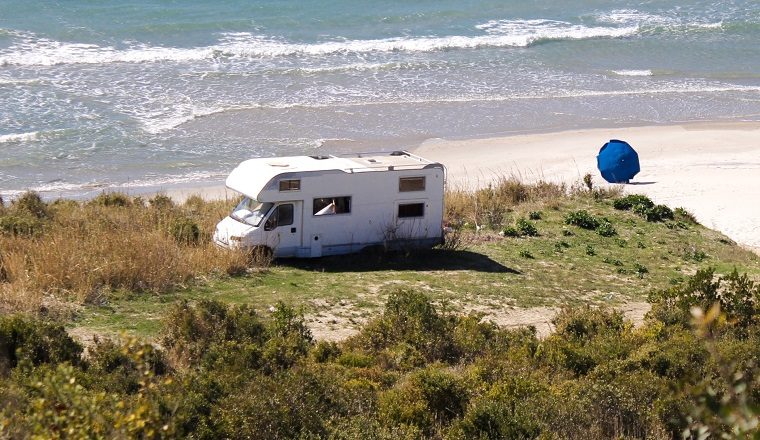
Recreational vehicles are becoming increasingly popular, and if you were thinking of getting behind the wheel of one for a summer trip, you might also be wondering if you need a special license to drive it.
It depends on the state, but as a general rule, unless you go really big, you won’t need a special license. That being said, for these kinds of things it’s better not to operate on general rules, so we’ve put together a convenient list of the specific rules you should know about.
Related: Top road trip games to play in an RV
- Arkansas (for vehicles over 26,000 lb)
- Connecticut (Class B license for single vehicles over 26,000 lb; Class A license for multiple vehicles with a combined weight over 26,000 lb)
- Hawaii (Class B license for single vehicles over 26,000 lb; Class A license for multiple vehicles with a combined weight over 26,000 lb)
- Kansas (Class B license for single vehicles over 26,000 lb; Class A license for multiple vehicles with a combined weight over 26,000 lb)
- New Mexico (Class B license for single vehicles over 26,000 lb; Class A license for multiple vehicles with a combined weight over 26,000 lb)
- Washington, D.C. (Class B license for single vehicles over 26,000 lb; Class A license for multiple vehicles with a combined weight over 26,000 lb)
- Wisconsin (for vehicles over 45 feet long)
Related: Common RV issues you’ll want to know about
- California (Class B license for vehicles over 26,000 lb or over 40 feet long; Class A license if towing over 10,000 lb)
- Maryland (Class B license for vehicles over 26,000 lb)
- Michigan (Recreational Double “R” Endorsement when towing a fifth wheel plus a trailer)
- North Carolina (Class B license for single vehicles over 26,000 lb; Class A license for multiple vehicles with a combined weight over 26,000 lb)
- Nevada (Class B license for single vehicles over 26,000 lb; Class A license for multiple vehicles with a combined weight over 26,000 lb; “J” Endorsement when towing a vehicle over 10,000 lb when combined weight is over 26,000 lb)
- New York (Recreational Vehicle or “R” endorsement for vehicles over 26,000 lb)
- Pennsylvania (Class B license for single vehicles over 26,000 lb; Class A license for multiple vehicles with a combined weight over 26,000 lb)
- South Carolina (Class E license for single vehicles over 26,000 lb; Class F license for multiple vehicles with a combined weight over 26,000 lb)
- Texas (Class B license for single vehicles over 26,000 lb; Class A license for multiple vehicles with a combined weight over 26,000 lb)
- Wyoming (Class B license for single vehicles over 26,000 lb and towing under 10,000 lb; Class A license for multiple vehicles with a combined weight over 26,000 lb and towing over 10,000 lb)
That leaves out 34 states that do not require a commercial or special non-commercial driver’s license to drive an RV, and given that the states that do require one only do so when very large or heavy RVs and trailers are involved, the odds are in your favor that you won’t need one.
Nevertheless, when mapping out your itinerary, remember to look at all of states where your trip will take you. If you enter a state that requires a license, you’ll need to get one even if the other states don’t; alternatively, consider changing your route — or downsizing your RV.
The News Wheel is a digital auto magazine providing readers with a fresh perspective on the latest car news. We’re located in the heart of America (Dayton, Ohio) and our goal is to deliver an entertaining and informative perspective on what’s trending in the automotive world. See more articles from The News Wheel.




